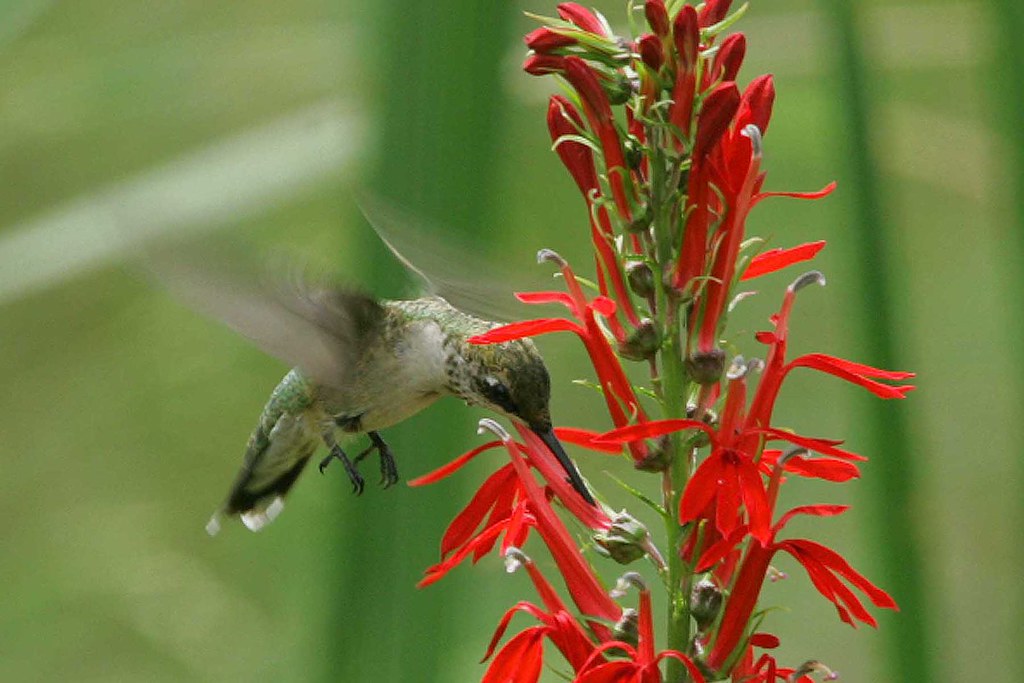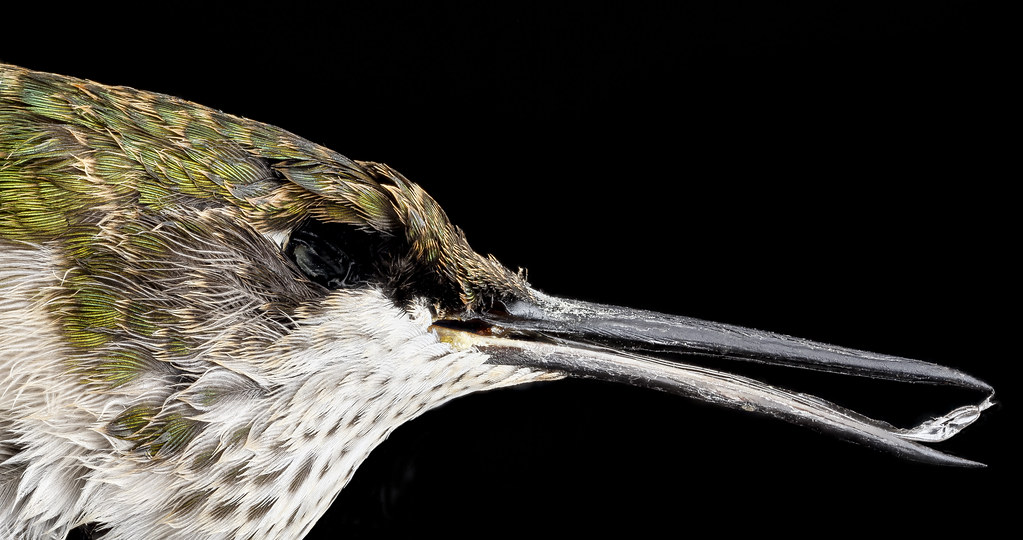
While observing your bird feeder or flower garden, you may have noticed a hummingbird or two buzzing around. These birds are beautiful, tiny, and incredibly fast fliers. Although they are seemingly harmless little birds, some people do wonder: do hummingbirds bite?
As a general rule, is highly unlikely for a hummingbird to bite you, and there haven’t been any reported cases of hummingbirds biting humans. Although, since hummingbirds have beaks that open and close, we can’t completely rule out the possibility of hummingbird bites, even if they are unlikely.
In this article, I’m going to explore how likely it is to deal with a hummingbird bite, I’ll show you how hummingbirds typically interact with humans, and I’ll even show you a very unique hummingbird with a serrated beak!
Understanding Hummingbird Beaks
While looking from a distance, a hummingbird’s beak looks more like a needle than a beak, right? But did you know that they actually have tongues? And that hummingbird beaks can open and close just like most other birds?
Watch this awesome slow-motion video, and you will get a better understanding of how hummingbirds’ their beaks and tongues work:
Normally, while consuming nectar, their beaks don’t open much. Instead, a hummingbird will use its tongue to lap up nectar into its beak.
However, when hummingbirds catch insects, they can surely open their beak. They do this by flexing their jaw downwards, thus creating a gap, which they then close to trap the insect.
Do Hummingbirds Have Teeth?
Hummingbirds don’t have teeth. In general, birds don’t tend to have teeth like mammals do.

However, few species (like some male hummingbirds in South America) are reported to have serrated teeth on their straight bills.
These unique hummingbirds don’t have typical teeth like dogs, cats, or humans, but special serrated edges on their beaks meant for fighting.
These hummingbirds use their serrated teeth to out-duel their rivals. They use the beak with teeth while fighting for the right eating spot. So, while most hummingbirds don’t bite humans, they might nip at each other!
Are Hummingbird Bites Dangerous?
At the most, what can happen if a hummingbird does bite you? Well, your skin could potentially get hurt. But again, this is VERY unlikely to happen because hummingbirds don’t tend to collide with humans 😉
For instance, watch this cool video:
The host was holding the feeder bottle in his mouth. The hummingbird came closer, sipped the nectar, and went away without bothering the human host. Isn’t that interesting?
So in most cases, you don’t have to worry about hummingbirds biting you. But still, we can’t rule out the possibility altogether. So it’s important to be aware of the potential dangers as well.
Dealing with Bird Bites
Hummingbirds are birds, and the infection from any bird biting can be a major concern.
There is a case of a 68-year-old woman who suffered from non-healing papule and chronic kidney disease after experiencing a cockatoo bite on her hand.
Later on, Mycobacterium chelonae/abscessus was separated from the lesion.
Another incident is of a 17-year-old man who received a parrot bite on his left index finger.
While the patient was petting the parrot, it clamped his fingers for a few seconds before lifting away. (Ouch!)
Although the patient was overall healthy, examination revealed that there was a 6-cm laceration to the ulnar border of his left index finger.
So, in short, when a bird bites, there are two risks:
- Infection
- Injury
On the extreme side of the danger of hummingbird bite, you can expect injury or, in worst cases, an infection.
What To Do If A Hummingbird Bites You?
Since hummingbirds are also animals, you need to take precautions against any potential harm, just as you would from an animal bite.
If the hummingbird bite is minor and only breaks your skin, you can take the following steps:
- Firstly, wash the wounded area thoroughly with soap and water.
- Next, put an antibiotic ointment or cream on the affected area.
- Then, take a clean bandage and cover the bite.
Please note that you will have to look for quick medical care if any of the following situations arise:
- If there is a deep puncture in the wound, or if you’re suspicious and unsure how serious it has become.
- Your skin is badly crushed, torn, or if it is bleeding heavily, you should first apply pressure with a clean cloth or bandage to stop the bleeding.
- You find an increase in swelling, pain, redness, or oozing, be aware that those are the heads-up signs of potential infection.
Possible Reasons Why Hummingbirds Might Bite Humans
Even though it may seem that hummingbirds are cute and harmless, they are birds with natural protective instincts.
Hummingbirds can be territorial. Remember those hummers attacking each other in your yard?
Some hummingbirds just don’t like to share their food with others.
So if the hummingbirds visiting your feeder consider you as a threat, then maybe (in extreme and very rare situations), you could get poked or nipped.
Another likely possibility is that you may have stepped near a hummingbird’s nest. If the female hummingbird is protecting her young, maybe she’ll decide to nip at you.
But overall, hummingbirds generally don’t tend to attack humans. Instead, they are just curious little creatures that like inspecting around you for food.
They tend to fly too close to a human because they know they can fly away quickly.
Fun Fact: Hummingbirds can fly super-fast – they are known as fighter pilots in the avian world! Their max forward flight speed is around 30 miles per hour.
There have been instances where the hummingbird just got right on a person’s face (as if they were demanding to fill the feeder quickly).
That said, despite being so curious and brave, they don’t have enough body mass to stand against and do any significant damage to a human.
Conclusion: Do Hummingbirds Bite?
Hummingbirds can get aggressive, but it is most likely saved for other hummers trying to capture their food resources and territory. So there is a very small chance that you would ever get hurt or bitten by a hummingbird.
And even if you find them buzzing around you, they are likely giving you a warning or just getting curious.
So next time you go near your hummingbird feeders, don’t get too frightened if a hummingbird gets close. Just keep a safe distance and enjoy the beauty of hummers.

